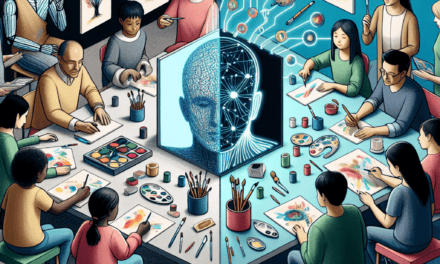In Honor of Uncle Lee: My Battle for Mental Health Reform
The journey toward mental health reform is often fraught with challenges, stigma, and a lack of understanding. For many, including myself, this journey is deeply personal. My Uncle Lee, a vibrant and loving figure in my life, struggled with mental health issues that ultimately led to his untimely passing. In his honor, I have dedicated myself to advocating for mental health reform, aiming to shed light on the systemic issues that plague our mental health care system. This article explores the multifaceted aspects of mental health reform, drawing from personal experiences, research, and the stories of others who have faced similar battles.
The Importance of Mental Health Awareness
Mental health awareness is the cornerstone of any reform effort. Understanding the prevalence and impact of mental health issues is crucial for fostering empathy and driving change. According to the World Health Organization (WHO), approximately 1 in 4 people will experience a mental health issue at some point in their lives. This staggering statistic underscores the need for increased awareness and understanding.
Awareness campaigns have gained traction in recent years, but there is still a long way to go. Many individuals remain unaware of the signs and symptoms of mental health disorders, leading to delayed treatment and exacerbation of conditions. For instance, depression and anxiety are often mischaracterized as mere sadness or stress, causing individuals to suffer in silence.
- Stigma and Misconceptions: Stigma surrounding mental health can deter individuals from seeking help. Misconceptions about mental illness often lead to discrimination and isolation. For example, many people believe that mental health issues are a sign of weakness, which can prevent individuals from reaching out for support.
- Education and Training: Educating the public about mental health is essential. Schools, workplaces, and community organizations should implement training programs that teach individuals how to recognize mental health issues and respond appropriately.
- Personal Stories: Sharing personal stories can humanize mental health issues and foster understanding. When individuals like myself share their experiences, it can encourage others to speak out and seek help.
- Media Representation: The media plays a significant role in shaping perceptions of mental health. Positive representation of mental health issues in films, television, and literature can help reduce stigma and promote understanding.
- Community Engagement: Engaging communities in mental health awareness initiatives can create supportive environments. Community events, workshops, and support groups can provide valuable resources and foster connections among individuals facing similar challenges.
In my journey to honor Uncle Lee, I have witnessed the transformative power of awareness. By sharing his story and advocating for mental health education, I hope to inspire others to join the fight for reform.
The Current State of Mental Health Care
The current state of mental health care in many countries is inadequate, with significant gaps in access, quality, and funding. According to the National Institute of Mental Health (NIMH), nearly 60% of adults with a mental illness did not receive mental health services in the previous year. This alarming statistic highlights the systemic barriers that prevent individuals from accessing the care they need.
One of the primary challenges is the lack of mental health professionals. The WHO estimates a global shortage of 1.4 million mental health workers, which exacerbates the crisis. In many regions, especially rural areas, individuals may have to travel long distances to access care, leading to delays in treatment.
- Insurance Coverage: Many insurance plans offer limited coverage for mental health services, leading to high out-of-pocket costs for individuals seeking treatment. This financial barrier can deter individuals from pursuing necessary care.
- Workforce Shortages: The shortage of mental health professionals, including psychiatrists, psychologists, and social workers, creates long wait times for appointments. This can be particularly detrimental for individuals in crisis who require immediate support.
- Quality of Care: The quality of mental health care can vary significantly. Some individuals may receive inadequate treatment due to a lack of training or resources among providers. This inconsistency can lead to misdiagnosis and ineffective treatment plans.
- Integration with Primary Care: Mental health care is often siloed from primary care, leading to fragmented services. Integrating mental health care into primary care settings can improve access and ensure that individuals receive comprehensive care.
- Policy and Funding: Insufficient funding for mental health services is a pervasive issue. Advocacy for increased funding and policy changes is essential to address the systemic barriers that hinder access to care.
In my advocacy efforts, I have encountered numerous individuals who have faced these barriers firsthand. Their stories serve as a reminder of the urgent need for reform in our mental health care system.
The Role of Advocacy in Mental Health Reform
Advocacy plays a crucial role in driving mental health reform. By raising awareness, influencing policy, and mobilizing communities, advocates can effect meaningful change. My journey as an advocate began with a desire to honor Uncle Lee’s memory and ensure that others do not face the same struggles he did.
Effective advocacy requires a multifaceted approach. It involves collaboration with various stakeholders, including mental health professionals, policymakers, and community organizations. By working together, advocates can amplify their voices and create a united front for reform.
- Grassroots Movements: Grassroots movements have the power to mobilize communities and raise awareness about mental health issues. Local organizations can organize events, workshops, and campaigns to educate the public and advocate for policy changes.
- Policy Advocacy: Engaging with policymakers is essential for driving systemic change. Advocates can lobby for increased funding, improved access to care, and the implementation of evidence-based practices in mental health treatment.
- Collaboration with Professionals: Collaborating with mental health professionals can enhance advocacy efforts. By leveraging their expertise, advocates can develop informed strategies and initiatives that address the needs of individuals with mental health issues.
- Utilizing Social Media: Social media platforms provide a powerful tool for advocacy. By sharing stories, resources, and information, advocates can reach a wider audience and foster a sense of community among individuals affected by mental health issues.
- Building Coalitions: Forming coalitions with other advocacy groups can strengthen efforts for reform. By uniting diverse voices, advocates can create a more significant impact and push for comprehensive changes in mental health policy.
Through my advocacy work, I have witnessed the power of collective action. By coming together, we can honor the memories of those we have lost and create a brighter future for individuals facing mental health challenges.
Personal Stories: The Human Impact of Mental Health Issues
Personal stories are at the heart of the mental health reform movement. They humanize the statistics and highlight the real-life impact of mental health issues on individuals and families. My Uncle Lee’s story is just one of many that illustrate the urgent need for reform.
Uncle Lee was a beloved figure in our family, known for his kindness and sense of humor. However, he struggled with depression for many years, often feeling isolated and misunderstood. Despite his challenges, he was hesitant to seek help due to the stigma surrounding mental health. Tragically, his battle ended in despair, leaving our family heartbroken and searching for answers.
- Case Study: The Impact of Untreated Mental Illness: Many individuals face similar struggles as Uncle Lee. A case study published in the Journal of the American Medical Association (JAMA) highlights the consequences of untreated mental illness, including increased risk of suicide, substance abuse, and chronic health conditions.
- Stories of Resilience: While many stories highlight the challenges of mental illness, others showcase resilience and recovery. Individuals who have sought help and found effective treatment often share their journeys to inspire others to seek support.
- The Role of Support Systems: Support systems play a crucial role in the recovery process. Family, friends, and community organizations can provide essential support and encouragement for individuals facing mental health challenges.
- Advocacy Through Storytelling: Sharing personal stories can be a powerful form of advocacy. By speaking out about their experiences, individuals can raise awareness and reduce stigma, encouraging others to seek help.
- The Need for Empathy: Understanding the human impact of mental health issues fosters empathy and compassion. By listening to the stories of others, we can create a more supportive environment for individuals facing mental health challenges.
In honoring Uncle Lee, I have come to realize that sharing our stories is a vital part of the healing process. By opening up about our experiences, we can create a sense of community and support for those who may feel alone in their struggles.
Future Directions for Mental Health Reform
The future of mental health reform is promising, but it requires continued advocacy, innovation, and collaboration. As we move forward, it is essential to prioritize the needs of individuals facing mental health challenges and work toward creating a more equitable and accessible system.
Several key areas warrant attention in the pursuit of mental health reform:
- Policy Changes: Advocating for policy changes that prioritize mental health funding and access to care is crucial. This includes pushing for legislation that mandates insurance coverage for mental health services and supports integrated care models.
- Telehealth Expansion: The COVID-19 pandemic has accelerated the adoption of telehealth services, providing new opportunities for individuals to access care. Expanding telehealth options can improve access for those in remote areas or with mobility challenges.
- Research and Innovation: Investing in research to better understand mental health disorders and develop effective treatments is essential. Innovative approaches, such as digital therapeutics and peer support programs, can enhance the quality of care.
- Community-Based Services: Strengthening community-based mental health services can provide individuals with the support they need in their own environments. This includes expanding access to crisis intervention services and peer support programs.
- Education and Training: Ongoing education and training for mental health professionals are vital to ensure that they are equipped to provide effective care. This includes training on cultural competence and trauma-informed care.
As I reflect on my journey to honor Uncle Lee, I am filled with hope for the future of mental health reform. By advocating for change and sharing our stories, we can create a world where individuals facing mental health challenges receive the support and care they deserve.
Conclusion
The battle for mental health reform is a deeply personal and collective journey. In honor of Uncle Lee, I have dedicated myself to advocating for change, raising awareness, and sharing stories that highlight the human impact of mental health issues. Through increased awareness, effective advocacy, and a commitment to reform, we can create a more equitable and accessible mental health care system.
As we move forward, it is essential to remember that mental health is a vital component of overall well-being. By prioritizing mental health awareness, advocating for policy changes, and sharing our stories, we can honor those we have lost and create a brighter future for individuals facing mental health challenges. Together, we can make a difference and ensure that no one has to face their struggles alone.





